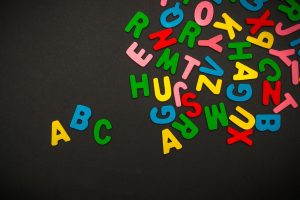 Children each learn and develop at their own pace, and reading is no different from other skill building. It’s common for kids to find reading challenging at one point or another. But if learning to read becomes an ongoing struggle that leaves a child falling behind his peers, it’s possible that he has a learning disorder known as dyslexia.
Children each learn and develop at their own pace, and reading is no different from other skill building. It’s common for kids to find reading challenging at one point or another. But if learning to read becomes an ongoing struggle that leaves a child falling behind his peers, it’s possible that he has a learning disorder known as dyslexia.
Dyslexia is most commonly associated with trouble learning to read. It affects a child’s ability to recognize and manipulate the sounds in language. Kids with dyslexia have a hard time decoding new words, or breaking them down into manageable chunks they can then sound out. This causes difficulty with reading, writing and spelling. They may compensate by memorizing words, but they’ll have trouble recognizing new words and may be slow in retrieving even familiar ones.
A young person with dyslexia may:
In school, children with dyslexia are likely to:
Dyslexia affects children outside of school as well. Kids with dyslexia may also:
Dyslexia affects a lot more than reading — it can also impact a child socially. “A dyslexic person who has word-finding difficulties can have trouble with their expressive language,” says Scott Bezsylko, the executive director of Winston Preparatory School, which specializes in teaching kids with learning disorders. “That has a social impact, in addition to your difficulties with reading and writing, that make you feel not so good about yourself.”
Kids with dyslexia — particularly those who have yet to be diagnosed — often suffer from low self-esteem because they worry that there is something wrong with them, and are often accused of not trying hard enough to learn to read.
Excerpted from “Understanding Dyslexia” from the Child Mind Institute. Read the full article to learn how dyslexia is diagnosed, when a child should be evaluated, how to help kids with dyslexia, and more.